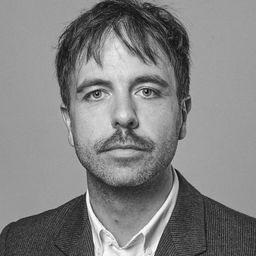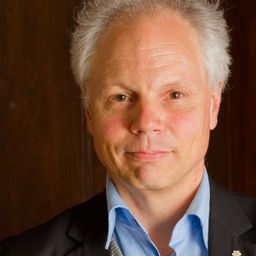
Sessions in which Robbert Jacobs participates
الأحد 5 يونيو, 2016
Sessions in which Robbert Jacobs attends
الجمعة 3 يونيو, 2016
Qu’est-ce que le patrimoine change à Montréal? Qu’est-ce que Montréal change au patrimoine? Ce débat vise à mettre en discussion l'évolution et le devenir du patrimoine dans la métropole du Québec en interrogeant les motifs de l'attachement (ou de l'indifférence) de la société civile et des décideurs, mais aussi en questionnant les moyens dont ils disposent pour agir sur le patrimoine. Au-delà de la fameuse "pierre grise" et des matériaux expressifs de l'identité historique de Montré...
السّبت 4 يونيو, 2016
What if we changed our views on heritage? And if heritage has already changed? While, on the global scene, states maintain their leading role in the mobilization of social and territorial histories, on the local scale, regions, neighbourhoods and parishes have changed. Citizens and communities too: they latch on to heritage to express an unprecedented range of belongings that no law seems to be able to take measures to contain, often to the discontent of...
The notion of heritage is closely linked to processes of change. In the Western context, the definition of heritage as "a contemporary product shaped from history" (Harvey 2010) highlights the extent to which our relationship with the past is being continually re-configured. However, there is a future dimension implied in this relationship that is often neglected; to paraphrase William Morris, the sense in which heritage testifies to the hopes and aspirations of those now passed away. Making ...
Much is being made of the perceived breakdown of the nation-state, which was historically configured as a “container” of heritage formations, adopting and perusing local traditions where possible but oppressing them where deemed unsuitable. Migration is seen as eroding the rigid boundaries of this configuration, potentially liberating identities and heritages in the process. This session addresses the relationship between critical heritage and redefinitions of self, other, community and place...
Heritage practices often lead to social exclusion. As an "Authorized Heritage Discourse" (AHD) (Smith 2006) may define what is considered to be heritage, a certain set of social values can come to exclude other values. By formulating heritage policies which reproduce the existing AHD government may further such exclusion. Every now and then AHDs are challenged, leading to what political scientists like Ross (2007; 2009) call "cultural contestations" between groups. These are surrounded ...
الأحد 5 يونيو, 2016
Le patrimoine, ça change quoi ? Ou plutôt, qu'est-ce que c'est ? Et pour qui ? Ces questions sont à l'origine de cette exposition conçue par les étudiants à la maîtrise en muséologie UQAM-UdeM. L'opinion de la communauté uqamienne y est confrontée à des citations de chercheurs, avec comme résultat une mise en perspective originale du discours sur le patrimoine. __ How is heritage important? Or rather, what is heritage? And for whom? Those questions are at the core of this e...
"What does heritage change?" is a multifaceted question to which the answer(s) are in primary respects related to real-life negotiations among different groups of citizens, cultures, races, ethnic groups, sexual identities, and social classes about received, official and/or widely accepted or accomodated intangible attributes, cultural traditions, historic monuments, buildings, and other transmitted or revived historical legacies. Heritage designated by and for whom, for what motivations, an...
Directed by Tom Fassaert and presented by Marc Jacobs. ___ Doel, a Belgian village near the Dutch border, is disappearing quickly and deliberately. Not because of the four old nuclear reactors on its territory, but because the Flemish government decided that the village might block projects for new docks for the Antwerp harbour, plans developed since the 1960s. In the 21st century this process of officially encouraged depopulation is coming to an end: 2500 inhabitants i...
الإثنين 6 يونيو, 2016
Dominique Fontaine / Livia Daza-Paris, A video and photographic installation. (All Day Installation) Livia Daza-Paris presents an investigative work, which considers grief, political displacement and how they inhabit one’s own body and place of dwelling. The visits (of which there were none) Episode N. 2; is a segment being developed in Montreal as part of On Antigone Steps: poetic forensics of t...
This session seeks to explore the role of urban heritage in mediating and contesting political conflict in the context of divided cities. We take urban heritage in a broad sense to include places left, scarred or transformed by geo-political dispute, national and ethnic division, violence and war. The case studies can include tangible spaces such as elements of border architecture, historic sites, ruins and urban traces of the conflict, and memorials; as well as intangible elements of city, i...
Heritage processes vary according to cultural, national, geographical and historical contexts. Since the late 1980s, the phenomenon of contestation in heritage has been increasingly recognized. However, there is still little detailed and situated knowledge about the range of actors present in contestations, the variety of strategies they pursue, the reasoning behind their choices, the networks they develop, and how, from all this, heritage has been and is constructed. More often than not, con...
There are many different kinds of migrants in the contemporary world. They include the familiar figures of refugees or undocumented migrants, associated with and suffering from exclusionary practices, poverty, silencing or repressions; skilled migrants with economic resources but lacking the tools for cultural and social integration; migrants or second generation migrants returning to their homelands and becoming "strangers" there; people moving to several countries as global nomads, etc. An ...
Involving communities, visitors or the public is frequently presented as one of the major tasks of museums and heritage sites in current global movements toward new collaborative paradigms (Golding and Modest 2013; Watson and Waterton 2011). Co-production is a highly current issue, and a proposed emancipatory solution to the authorized heritage discourse, which seemingly has reached a critical juncture. Scholarship has echoed calls from communities for more direct involvement in the presentat...
Around the globe the planning of large-scale memorial-museum projects concerned with violent histories are frequently marred by conflict, omission, and competitions of victimhood. This problem also extends to scholarship on genocide and memory. “Moving memory” is a collaborative multi-sited research exhibition about the Armenian and Roma genocides that proposes creative solutions to these museological and scholarly conflicts around commemoration. Our multi-sited event includes two pr...
Directed by Christine Walley and Chris Boebel Presented by Michelle Stefano When the steel mills began closing on Chicago's Southeast Side, residents could feel the American Dream slipping away. Decades later, the loss of the steel industry has left permanent scars. The documentary film, Exit Zero: An Industrial Family Story, is named for the highway exit number for Chicago’s old steel mill neighbourhoods and captures the feeling of a region passed over. In poignant and some...
الثّلاثاء 7 يونيو, 2016
Le patrimoine, ça change quoi ? Ou plutôt, qu'est-ce que c'est ? Et pour qui ? Ces questions sont à l'origine de cette exposition conçue par les étudiants à la maîtrise en muséologie UQAM-UdeM. L'opinion de la communauté uqamienne y est confrontée à des citations de chercheurs, avec comme résultat une mise en perspective originale du discours sur le patrimoine. __ How is heritage important? Or rather, what is heritage? And for whom? Those questions are at the core of this e...
Involving communities, visitors or the public is frequently presented as one of the major tasks of museums and heritage sites in current global movements toward new collaborative paradigms (Golding and Modest 2013; Watson and Waterton 2011). Co-production is a highly current issue, and a proposed emancipatory solution to the authorized heritage discourse, which seemingly has reached a critical juncture. Scholarship has echoed calls from communities for more direct involvement in the presentat...
What is involved in presenting the past as a physical object in public space? There is a significant literature by scholars in various disciplines that deals with the array of decisions that need to be made regarding which stories should be told, and how they should be represented. Nevertheless, once constructed, there is a tendency to see these objects as natural, as if they had to be built and could not have been constructed any other way. The Lost Stories project is designed to involve ...





